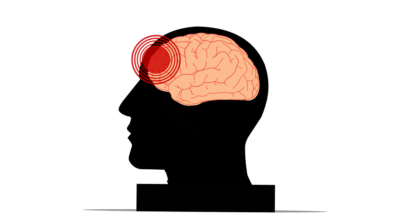
The hidden trauma of grievance. Why others can’t really understand your pain
Grief is a deeply personal experience that varies among individuals due to several factors. The uniqueness of each person’s relationship with their lost friend, the individual’s coping style, cultural and religious influences, the timing of the loss, and the presence of a support system all contribute to these differences.
Dealing with the loss of a loved one, whether it’s a family member, friend, or pet, requires following several important steps. As mentioned before, our emotional responses to the departed may vary, but it’s safe to say that the pain is universally felt, albeit at different degrees.

First and foremost, Acknowledge Your Emotions: Understand that grieving involves a range of emotions, including sadness, anger, guilt, and even moments of relief. It’s a non-linear process, and experiencing ups and downs is natural.
Join a Support Group: Consider joining a support group for individuals who have experienced similar losses. Sharing your feelings with others who understand can provide comfort and reduce feelings of isolation.
Celebrate and Remember: Honor your friend’s life and the positive memories you shared. Creating a memory book or participating in activities that pay tribute to their legacy can be therapeutic.
Self-Care: Take care of your physical and emotional well-being by getting adequate rest, maintaining a healthy diet, and engaging in activities that bring comfort and joy.
Professional Assistance: If your grief is significantly affecting your daily life, consider seeking professional counseling or therapy.
Journal Your Feelings: Writing down your thoughts and emotions in a journal can be a therapeutic way to process your grief and gain clarity.
Patience: Understand that grief doesn’t adhere to a set timeline. Be patient with yourself and let the healing process unfold naturally.
Creative Expression: Consider keeping a journal, writing letters to your friend, or using creative outlets like art or music to express your emotions.
Honor Their Legacy: Support causes or engage in activities your friend was passionate about to carry on their legacy.
Seek Meaning and Purpose: Reflect on the lessons and experiences you’ve gained from your friendship with your lost friend. Consider how you can carry their legacy forward and find meaning in their memory.

It’s essential to recognize that there is no single “right” way to grieve, and it’s crucial to be kind and patient with yourself during this challenging period. You may experience both good days and challenging ones. With time, support, and self-compassion, you can gradually find a sense of peace and move forward while treasuring the memories of the ones you lost.
dr.dan
Related Posts
Magic of pre-relationship therapy: If you are single and have made numerous dating mistakes in the past, relationship therapy may be the solution. The brutal truth of dating in the 21st century. Reality exposed!
With modern dating often filled with challenges like ghosting and breadcrumbing,...
The many ugly outcome of generational trauma: Effective strategies on how to reclaim full control of your thoughts after dealing with any sorts of trauma. Secrets revealed.
Generational trauma, also referred to as intergenerational or transgenerational...
The Dire challenge of overthinking everything: Strategies to minimize the impact on your mental health when dealing with obsessive and rapid thoughts.
Overthinking, also known as rumination or obsessive thought, involves repeatedly...
The hidden trauma of grievance. Why others can’t really understand your pain
Grief is a deeply personal experience that varies among individuals due to...




